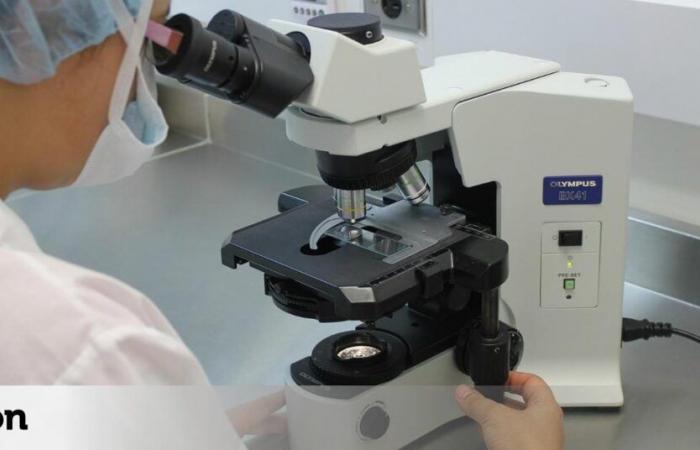Colorectal cancer is the third type of malignant tumor more diagnosed worldwide, and up to 80 % of cases are related to environmental and lifestyle factors.
A recent investigation, published in Nature Communications, demonstrates the existence of a Molecular mechanism by which the formation of aggressive tumors in the Columbus begins. The study, led by the National Oncological Research Center (CNIO), blames it for the lack of P53 protein, capable of inhibiting cell division.
In research with mice, the authors observed that this protein began to degrade – to reduce its presence – in the initial stages of tumors formation. This allowed the appearance and development of cancer.
Grow in a uncontrolled way
The antitumor function of the p53 It is known. This protein blocks the division of the cells and contributes to the destroying when they present some dysfunction, so it is considered a tumor suppressor. When this molecule loses its function, the cells acquire the ability to grow out of control.
The first author of this study, Irene Herranz-Montoyaexplains that the shortage of P53 helps the formation of the tumor due to a cell uncontrol, and also facilitates that the cells accumulate other mutations that promote progression to more aggressive tumors.
In addition, the CNIO group identified an unprecedented mechanism in the regulation of P53 levels. It is a protein called URI, known for its expression in other types of cancer. By increasing URI levels in cells, P53 decreases.
URI protein
Previously, other scientists had related URI protein with other types of cancer, especially with that of liverbut this is the first time that URI is associated with colorectal tumors.
“URI levels begin to rise very at the beginning, which leads to the formation of the adenoma -A aberrant growth-that still does not constitute cancer, but it is at that stage where the P53 begins to degrade, ”explains Herranz-Montoya.
P53 is known blocks the division of cells and contributes to destroying when they have dysfunction. They saw that if they eliminated URI or raised the P53 levels in the polyps did not become tumors and mice with colorectal cancer lived longer
-
In their experiments in mice they saw that, if they eliminated URI or raised the P53 levels in the polypsthese did not become tumors and mice with colorectal cancer lived longer.
“If we focus on research Prevent your progression to more aggressive forms of the disease, ”says Herranz-Montoya.
With this objective, the team now focuses its work on the development of Inhibitors of the URI protein.
Lifestyle and diet
For his part, the leader of the Nabil Djouder project points out that this new mechanism could shed light possible causes of the increase in colorectal cancer in young adults, in relation to environmental factors and lifestyles.
“My team has shown that URI’s expression is related to certain environmental factors, such as a bad diet, both in other types of cancer and in the intestine,” Djouder explains.
On the other hand, the progressive decrease in P53 protein occurs independently to another process that was already known: the loss of the gene TP53 –The who encodes the P53 protein– in late stages of colorectal cancer.
Both processes influence cancer in parallel: protein degradation in initial phasesand the loss of the gene in more advanced stages in the context of metastasis.
Reference: Herranz- Montoya, I — ‘P53 protein degradation redefines the initiation mechanisms and drives transitional mutations in colorectal cancer’. Magazine Nature Commmunication, 2025 | DOI: 10.1038/s41467-025-59282-4.






